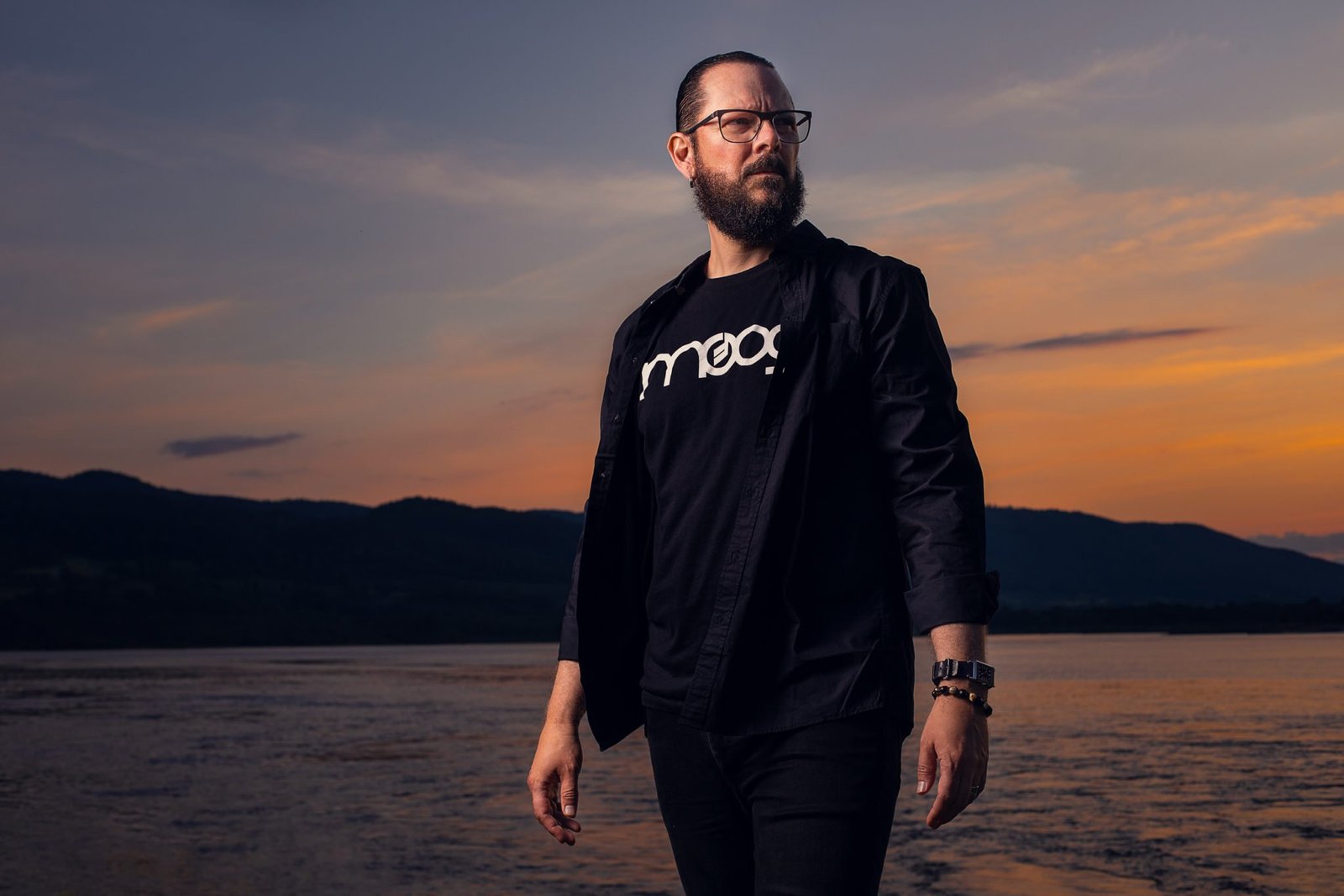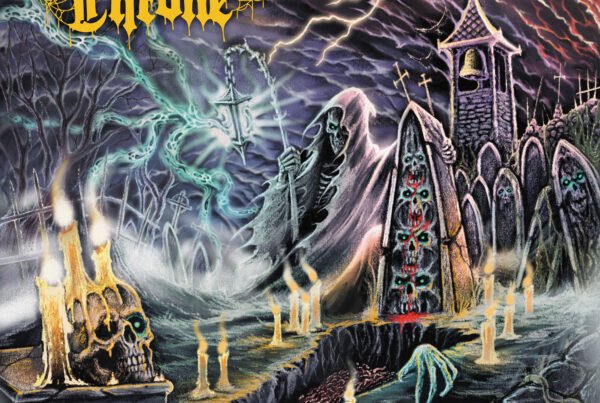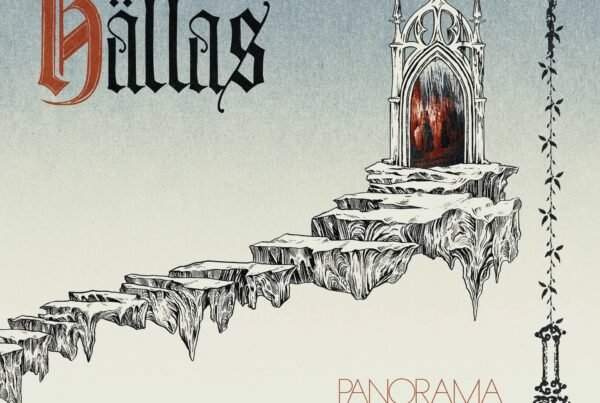Ihsahn‘s anticipated self-titled album is as arresting as it is aggravating, with the legendary multi-instrumentalist sounding stuck between two prosperous worlds
Release date: February 16, 2024 | Mnemosyne Productions/Candlelight Records | Facebook | Instagram | Twitter | Stream/Purchase
At the risk of blaspheming, I’ll admit that I’ve always vibed more with Ihsahn‘s solo stuff more than Emperor. All love to the OGs – and I do really like In The Nightside Eclipse, it’s a classic – but the frontman’s more progressive take on metal speaks to me more. Ever since Arktis. captivated me in 2016 with lush soundscapes, momentous melodies, and a frostbitten, grandiose sense of scale, I’ve always kept an eye on his stuff, and backtracked into his previous work under his own stage name. I even reviewed Telemark, his 2020 EP, though I totally forgot that I did until I started this one and looked for previous reviews.
Whether by withering memory or forgettable music, I really struggle to recall that project, his 2018 album Ámr (which a former writer of ours critically tore into at the time), or basically anything else since Arktis.. Do I even care anymore? Have I simply moved on? His new self-titled album will be the test, and what a test it is.
The hook with Ihsahn this time is he’s taken his work to a more extravagant level than before. There’s an album you’d expect – rife with progressive metal minutiae and the variety of tones, moods, and approaches that implies – and another orchestral version of the same songs. They’re not mutually exclusive either as the metal version of the album – the one we’ll be focusing on today – still has a lot of classical affectations to complement the guitars, drums, and vocals. Really, what this means to nerds like me is that you get two same-but-different albums and, based on the singles, they both sound like something you’d hear on a Castlevania game’s soundtrack. Peep the orchestral version of “Pilgrimage To Oblivion” then hit play on the metal version right here to see what I mean.
For the last decade-plus, Ihsahn‘s had this air of stateliness in metal; a pinky-out progger that put away the corpse paint, yet still retained the chaotic drive and darkness that his black metal roots afford him. There’s a lot to take in with his work from the spiraling, anxious pummel of instrumentation on “Pilgrimage To Oblivion” to the open, ballad-like approach at the beginning of “At The Heart Of All Things Broken”. Like most things in life, it’s a spectrum, and a vivid one at that. There’s some really high highs as a result, like some of the best stuff Ihsahn‘s ever produced and written.
Emboldened theatrics, dramatics, and dynamics really toss the album up in the air to soar around at will on the back of a regal bird. A cinematic intent bolsters the progressions in the songs here, especially the longer ones (of which there’s not that many, a slight negative in my eyes and ears). When Ihsahn takes up the mantle of a true blue composer and creator of sonic worlds, I genuinely feel like he’s one of the best to do it and as such wanted more of it. I think back to when I reviewed Wilderun‘s Veil of Imagination – a functionally flawless album – and felt similar feelings, of being picked up from my chair and gently placed in a brand new universe like a board game piece. This feels like a new creative home base for Ihsahn which is why I wish he didn’t venture as far away from it and into his past as he did.
This album is marked by a sense of stubborness – the weakest parts of this project are when the music is much more straightforward, clipped of its expansive wings and grounded with limited range of sight and therefore shining quality. “The Promethean Spark” isn’t a bad song, for example, but it is weighed with some disappointment as it’s just another Ihsahn-flavored prog metal excursion, though I do appreciate some of the xylophone in the song’s break in the middle. At least “Pilgrimage To Oblivion” holds up better because it goes to more extremes metal-wise that Ihsahn doesn’t indulge in quite as much in the last decade of work, and it still makes time for some suspenseful instrumentation and orchestration. But neither are no “The Distance Between Us” or aforementioned “At The Heard Of All Things Broken” which are the songs I had in mind when I mentioned some of his best work being on this album.
I feel like I’m only reviewing half of a project as well. I would have loved to sit down with the orchestral version of the whole album and pore over it, give it a fierce Roman handshake, and see where it takes me compared to the metalized one. If my feelings on this version are any indication, I’d likely take to the orchestral’s assumed wide-ranging, sweeping, and emotive movements a bit more. Would I miss the metal instrumentation then? In part, sure – Ihsahn‘s always toyed with both in recent projects in inequal degrees, but on this one it feels like a missed opportunity to not dive in unabated and transcend any label he’s had before.
So do I still care about Ihsahn? Of course. He’s clearly still got some interesting art to get out and expand his repertoire with. At this point, it feels like what’s holding him back the most is what got him here in the first place. This album feels like two half-measures in either direction where more devotion to one side over the other would – or could – have produced better overall results. Maybe these are simple growing pains for the storied 48-year-old artist, and far be it from me to write him off at this juncture – I only hope he can commit to the open-mindedness he gives glimpses of here in the future because I love what I heard so far.






